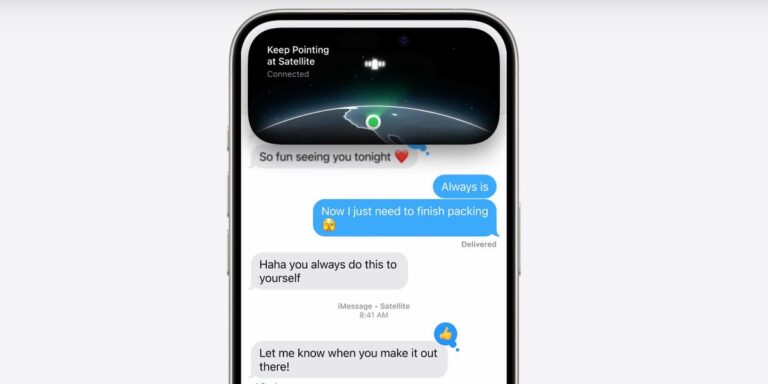- Apple’s new iOS 18 makes iPhone 14s and newer models less reliant on WiFi and cellular connections.
- The company is expanding the emergency satellite messaging feature introduced with the iPhone 14.
- While it’s free, it could become a revenue stream as Apple expands its services business.
Some of Apple’s iOS 18 software features could make iPhone 14 and later models less reliant on WiFi or cellular connections, which could make them less dependent on iPhone sales.
The company is expanding on the emergency messaging feature introduced with the iPhone 14, which will allow the device to contact emergency responders via satellite.
The service launched for free, but Apple suggested at the time that the emergency response features would likely require a fee, and then extended the free period for another year.
But then at WWDC last week, the company announced a non-emergency version of the service that it’s calling “messaging via satellite.”
“With satellite capabilities on iPhone 14 and later, you can connect to satellites hundreds of miles above Earth to send text messages to friends and family in areas with no signal coverage,” said Ronak Shah, Apple’s head of internet technology product marketing.
The feature supports sending and receiving messages, emojis, tapbacks, and SMS messaging with end-to-end encryption.
Emergency services are free and will likely remain free, but the non-emergency version could become a profitable part of Apple’s expansion into its services business to make up for sluggish iPhone sales. The company reported record services revenue last quarter, even as iPhone sales fell 10% year over year.
For now, the satellite-based messaging is likely to be most useful as an incentive for owners of older iPhone models to upgrade, especially if the service is expanded to support calls and other media.
But the financial benefits for the company could be even greater if it decides to charge for the service, like it does with Apple Music, News+ and TV+.

